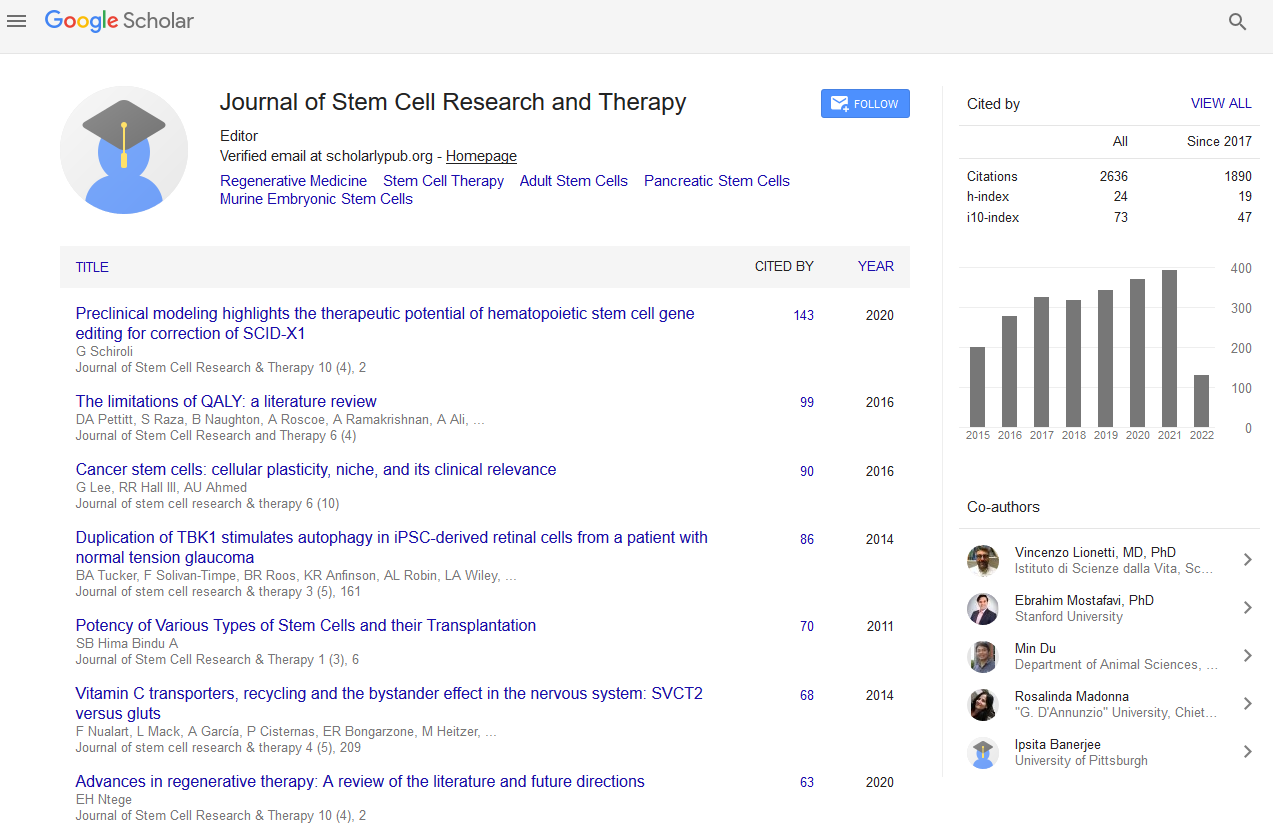Indexed In
- Open J Gate
- Genamics JournalSeek
- Academic Keys
- JournalTOCs
- China National Knowledge Infrastructure (CNKI)
- Ulrich's Periodicals Directory
- RefSeek
- Hamdard University
- EBSCO A-Z
- Directory of Abstract Indexing for Journals
- OCLC- WorldCat
- Publons
- Geneva Foundation for Medical Education and Research
- Euro Pub
- Google Scholar
Useful Links
Share This Page
Journal Flyer

Open Access Journals
- Agri and Aquaculture
- Biochemistry
- Bioinformatics & Systems Biology
- Business & Management
- Chemistry
- Clinical Sciences
- Engineering
- Food & Nutrition
- General Science
- Genetics & Molecular Biology
- Immunology & Microbiology
- Medical Sciences
- Neuroscience & Psychology
- Nursing & Health Care
- Pharmaceutical Sciences
Abstract
Endodermal and Hepatic Differentiation from Human Embryonic Stem Cells and Human Induced Pluripotent Stem Cells
Kenji Kawabata, Kazuo Takayama, Yasuto Nagamoto, Mary S. Saldon, Maiko Higuchi and Hiroyuki Mizuguchi
Induced hepatocytes differentiated from human embryonic stem cells (ESCs) or induced pluripotent stem cells (iPSCs) have a wide range of potential applications in biomedical research, drug discovery, and the treatment of liver disease. Differentiation of human ESCs and iPSCs into endodermal and hepatic cell types has been achieved by several methods, including addition of soluble factors into culture medium, transduction of differentiation-related genes, co-cultivation with other lineage cells, and a three-dimensional culture system. Each of these methods has an advantage from various points of view, such as the degree of maturation of differentiated hepatocytes, differentiation efficiency, clinical safety, and ease of handling. Currently, it is possible to select or combine the differentiation protocols to obtain ideal hepatocytes. The aim of this review is to describe the recent progress in endodermal and hepatic differentiation protocols from human ESCs and iPSCs in order to foster the suitable choice of induced hepatocytes on clinical and industrial applications.


